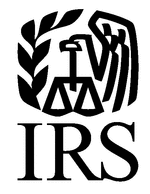The New year is upon us now and there is much to do to get things rolling. One thing to consider is how you plan your taxes for this year. What you did in 2015 is over! Don't make the same mistakes. Here are the new numbers/limits issued by the IRS for 2016 they may affect your current situation. Plan this year to pay less!
Tax Day Is April 18th:
Emancipation Day is the day that Washington decided that taxes are due which traditionally has been April 15th. However under federal law, the tax deadline gets extended when it falls on a holiday or weekend, so the tax deadline for this year will be the following Monday, April 18th. States in New England that celebrate Patriots’ Day will have even a later filing deadline of April 19th.
Because this year is leap-year (29 days in February) and three extra days in April, taxes this year will be due a total of four days later than normal. WeeHa!
Most Tax Brackets Are Rising Slightly:
Based on an adjustment for inflation, 2016 will see most tax brackets rise by roughly 0.4%.
Head of Household Filers Will Get A Bigger Standard Deduction:
Taxpayers qualifying as head of household, will see their standard deduction rise $50 to $9,300.
Rise In the Earned Income Credits:
Families with three or more qualifying children will see their maximum earned income credit rise to $6269. Families with two children will be getting a maximum earned income credit of $5572, while families with one child will be able to get up to $3373 in earned income credit. Taxpayers with no children will be able to claim up to $506 in 2016.
HSA Contribution Limits Going Up:
Health savings accounts (HSAs) allow individuals with high deductible health plans to set aside money on a pretax basis in order to cover anticipated healthcare costs. For 2016 the contribution limits for individual policies will remain at $3350, however, the maximum contribution for family policies will rise to $6750. A catch up contribution of $1000 for those 55 or older will continue to apply.
Higher AMT Exemption Offers Some Reprieve:
Ever since its inception in 1969, AMT has been a fairly unpopular tax. It was initially intended to tax higher income individuals who may have been paying too little in taxes. However, since AMT was never properly adjusted for inflation, it now affects middle income taxpayers as well. A reprieve in 2016 with an increase in the exemption up to $53,900 for single tax payers, and a jump to $83,800 for joint filers.
Estate Tax Exemption Edges Up:
Since the lifetime exemption amount for the gift and state tax is tied to inflation, it is slated to rise slightly this next year for 2016, increasing the exemption amount to $5.45 million, applicable to those that pass in tax year 2016.
Affordable Care Act (ACA) Penalties On The Rise:
The affordable care act imposes penalties for those not having qualified healthcare coverage. For 2016, a penalty of $695 or 2.5% (whichever is higher) of income will apply to individuals not having any healthcare coverage. Families with no healthcare coverage will see a significant increase from a $975 maximum penalty to $2,085 maximum household penalty or 2.5% of household income (whichever is higher).
Dont get caught trying to plan your taxes in the month of December to maximize deductions and lower your taxes. Now is the time to start the plan and work the strategies throughout the year. Make it a successful 2016!
Sources: Tax Foundation, IRSClick to edit your new post...
Remember:
"How does what we know get in the way of what we don't know?" - Liz Wiseman

 ay be postponed, it does not mean that you do not need to be compliant with the law. The postponed implementation is most likely on the part of the FFI’s than on the American citizens complying with the reporting requirements of the law. So you need to report your foreign assets.
ay be postponed, it does not mean that you do not need to be compliant with the law. The postponed implementation is most likely on the part of the FFI’s than on the American citizens complying with the reporting requirements of the law. So you need to report your foreign assets. ncreases on an IRS-set range.
ncreases on an IRS-set range. 


